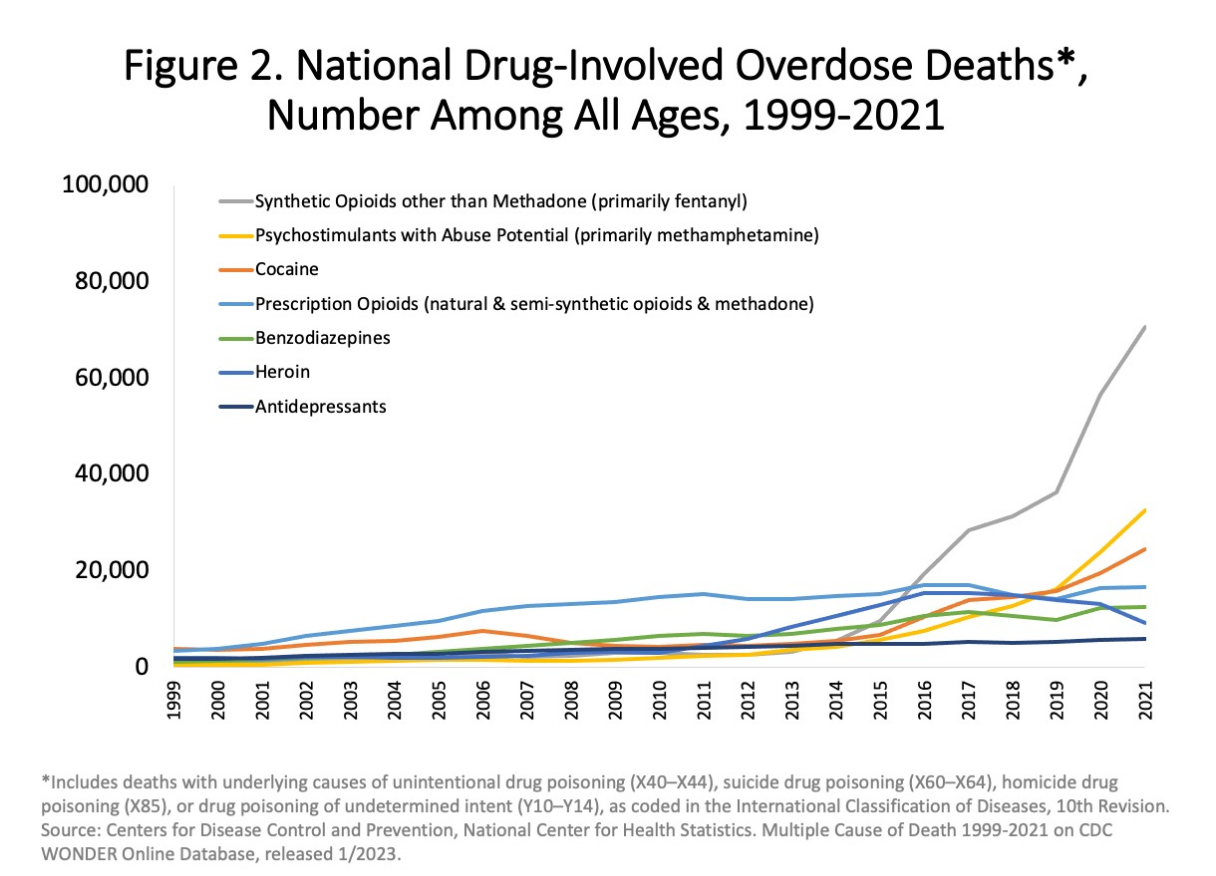 The Wesleyan Harm Reduction Initiative (WesHRI) began distributing Narcan—a potentially life-saving medication that can reverse the effects of an opioid overdose in minutes—across campus in September 2023. Students can now obtain Narcan, also known as Naloxone, anonymously and at no cost through an online form. Modeled after the Middletown Harm Reduction, an organization co-founded by Livia Cox ’22 in 2019, WesHRI aims to help the University community adapt to the increasing prevalence of fentanyl-laced drugs and minimize deaths from opioids.
The Wesleyan Harm Reduction Initiative (WesHRI) began distributing Narcan—a potentially life-saving medication that can reverse the effects of an opioid overdose in minutes—across campus in September 2023. Students can now obtain Narcan, also known as Naloxone, anonymously and at no cost through an online form. Modeled after the Middletown Harm Reduction, an organization co-founded by Livia Cox ’22 in 2019, WesHRI aims to help the University community adapt to the increasing prevalence of fentanyl-laced drugs and minimize deaths from opioids.
“It is so easy to prevent an overdose,” WesHRI co-leader Nia Chetkovich ’26 said. “All you need is education and some Narcan, and you’re set.”
As fentanyl is increasingly trafficked into the United States, fentanyl-related overdose deaths have risen sharply. Drugs such as MDMA (colloquially known as molly or ecstasy) and cocaine are sometimes surreptitiously laced with fentanyl, heightening the risk of overdose for both regular and occasional users. This threat is not absent in the Wesleyan community. Middletown saw 55 individuals die from overdoses in 2020 and 34 in 2021. According to Cox, 81% of those deaths can be attributed to fentanyl.
“[The Wesleyan community is] not immune,” Chetkovich said. “A lot of people don’t realize that this is something that could actually affect us.”
After a student submits the anonymous form to WesHRI, members of the organization either deliver Narcan to an on-campus location or arrange a pickup. Students can specify a preferred location and time for delivery or a contact for pickup in the form. Alternately, they can text the organization member specified in the form to coordinate. WesHRI co-leader Owen Lichtman ’26 emphasized the importance of providing Narcan to students.
“It’s present, it’s here, and it’s on campus,” Lichtman said. “We just want to make sure that people stay safe if they decide [to use drugs].”
WesHRI relies on funding and resources from existing harm reduction initiatives to supply Narcan to students. The organization is currently working to become a formal student group recognized by the Wesleyan Student Assembly (WSA) and thus eligible for funding from the Student Budget Committee.
Because WesHRI has a limited supply of Narcan, it asks students to self-categorize their requests into three categories based on risk. According to the WesHRI Narcan request form, high priority requests include individuals who use opioids, have immediate and recurring contact with individuals who use opioids, or hold a role in residential or Greek life. Middle priority requests include individuals who use or are close to users of other recreational drugs. Low priority requests are from other individuals without a personal connection to drug use.
“It pains me because I know how much money Wesleyan has,” Chetkovich said. “Our plan is to eventually get funds from the WSA or the Jewett Center for Community Partnerships.”
While the philosophy of harm reduction has faced some controversy at the national level, University policies have generally reflected harm reduction tactics. For example, the non-academic code of conduct establishes a medical amnesty policy that protects both the individual and any bystanders in the event of excessive drinking and/or drug use. WesHRI financial manager Henry Ewing-Crystal ’26 emphasized that harm reduction is for everybody, regardless of whether an individual experiments with drugs.
“Harm reduction is an important form of mutual aid,” Ewing-Crystal said. “I think that having the knowledge and resources to help prevent overdoses is incredibly important, not just for you, but for the community at large.”
However, Chetkovich believes the University could be doing more to prevent potential overdoses.
“There isn’t a level of urgency within the administration,” Chetkovich said. “This is something that could really hit Wesleyan hard…. It’s not because of malicious ignorance. It’s more like a blissful ignorance that they haven’t had to deal with this.”
WesHRI hopes to expand in the coming months, especially as parties increase on campus.
“We are still a very new organization, and are figuring things out,” Ewing-Crystal said.
Lichtman and Chetkovich expressed concerns about Halloween as a heavy-use weekend and encouraged anyone who believes that they may use drugs, or be around anyone using drugs, to carry Narcan. The Wesleyan Harm Reduction Initiative can be contacted on Instagram @weshri.
Miles Pinsof-Berlowitz can be reached at mpinsofberlo@wesleyan.edu.